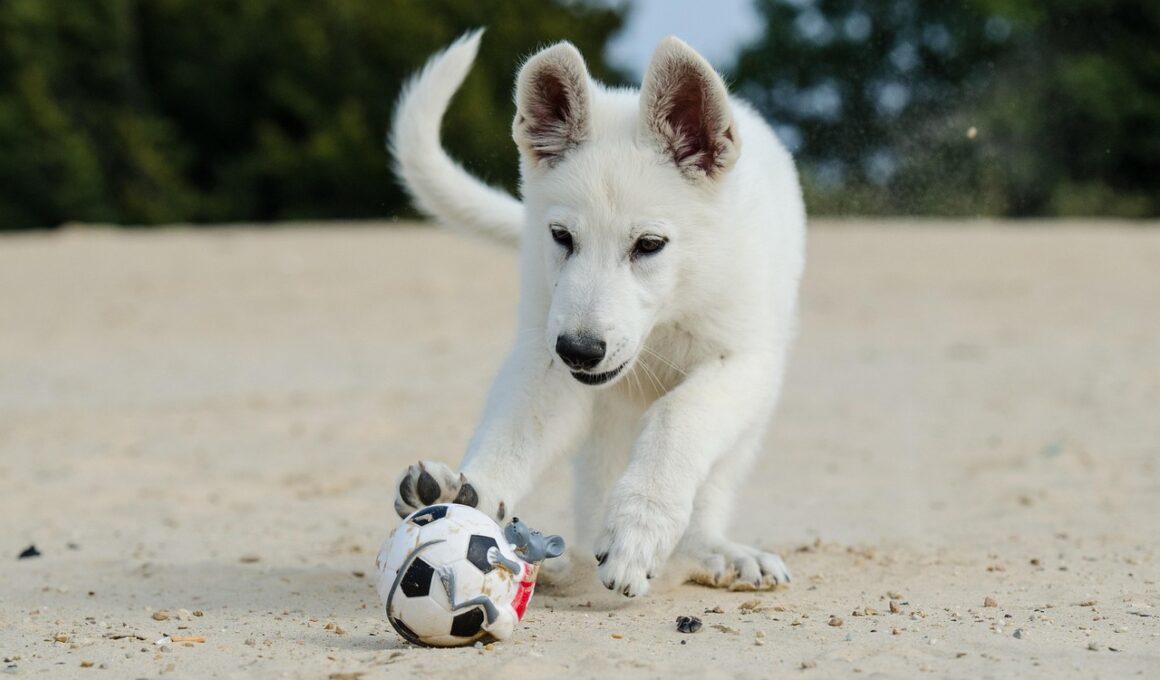Essential Puppy Adoption Checklist
Adopting a puppy is a big decision that requires careful planning and consideration. Before bringing a puppy home, prospective owners should be prepared for the responsibilities that come with pet ownership. Puppies thrive in loving environments and require plenty of time, attention, and love. Make sure you have a stable living situation and that your home is puppy-proofed. Gather essential supplies such as food bowls, toys, and a comfortable bed. Prepare your backyard or home to be safe and secure. Research local veterinary clinics to find one that fits your needs. Additionally, consider training resources such as puppy classes or obedience schools to help with behavioral issues and training needs. Investing in a quality leash, collar, and identification tags is crucial to keep your new puppy safe. Socialization is a key component for a happy, well-adjusted pup, so be prepared to introduce your puppy to various environments, people, and other pets. All these steps will help to ensure that you and your new furry friend have a smooth transition into life together.
After adopting a puppy, immediate attention is necessary to establish a healthy routine. This includes providing a balanced diet, regular exercise, and potty training. Start by choosing the right puppy food based on your puppy’s age, breed, and size. Consult with your veterinarian for recommendations on the best nutrition for your pet. Establish feeding schedules and stick to them to create a sense of routine for your puppy. Consistent exercise is important for their physical and mental well-being, so plan daily walks and playtime. Potty training should be initiated right away, as this is a crucial aspect of caring for a new puppy. Use positive reinforcement techniques to encourage good behavior. Patience and understanding are required as puppies learn, so remain consistent with your training methods. Schedule regular veterinary check-ups to monitor your puppy’s health and vaccinations. This will ensure that they are healthy as they grow. Furthermore, ensure that your living spaces remain clean and free from hazards to protect your playful, curious companion. Take time to bond with your puppy through play and interaction to strengthen your relationship.
Puppy Health and Wellness
Health considerations are vital when adopting a puppy. Ensure that your puppy is up-to-date on vaccinations and has been checked for potential health issues. Discuss preventive care with your veterinarian, including parasite control and flea prevention. Regular veterinary visits should be planned to keep your puppy healthy over time. Spaying or neutering is also an important aspect of responsible pet ownership, preventing unwanted litters and reducing health risks. Learning to recognize symptoms of common ailments or distress in puppies will aid in quick response times to their medical needs. A well-balanced diet is critical for maintaining optimal growth and development. Discuss nutritional guidelines suited for your puppy’s breed and age with your veterinarian. Additionally, regular exercise contributes to a healthy lifestyle, preventing obesity and behavioral problems. Socialization helps puppies learn appropriate behaviors and develop positive relationships with other dogs and animals. Introduce your puppy to new experiences gradually, ensuring they are comfortable and confident. Investing time and resources into your puppy’s health and wellness can lead to a long and fulfilling life together.
Training is an essential aspect of puppy ownership, establishing behavior and obedience. Start with basic commands like sit, stay, and come using treats as motivation. Consistent positive reinforcement encourages compliance and helps your puppy feel secure. Utilize training classes or workshops to enhance your skills and provide your puppy with social opportunities. Training should be engaging and enjoyable for both you and your puppy, promoting good behaviors. Be patient and understanding, as each puppy learns at their own pace. Incorporate fun activities to reinforce training, maintaining interest and enthusiasm. Over time, introduce more advanced commands and tricks as your puppy masters the basics. Address any behavioral issues, such as barking or chewing, promptly. Understanding the reasons behind unwanted behaviors is key to finding effective solutions. Consult with trainers or behaviorists if needed. Training and socialization go hand-in-hand, as the latter provides valuable experiences that mitigate anxiety and fearful reactions later in life. Make sure to expose your puppy to different environments, people, and pets to help them thrive in various situations. A well-trained puppy contributes to a happier home and a stronger bond between owner and pet.
Establishing a Routine
Establishing a daily routine for your puppy contributes significantly to their well-being. Consistency is important in areas such as feeding, walking, and training sessions. Puppies benefit from predictable schedules that help them understand what to expect throughout the day. Create a feeding schedule aligned with their dietary needs, including specific times for meals and treats. Designate ample time for outdoor potty breaks to avoid accidents inside the home. Regular walks not only support exercise but also present opportunities for socialization and exploration. Incorporate training exercises into your routine, promoting engagement and bonding. Consider including time for relaxations, such as quiet periods where your puppy can nap or lounge. As your puppy adjusts to their new life, make accommodations for their energy levels and needs. Monitor their growth and adapt routines as needed, especially as they transition from puppyhood to adulthood. A healthy, consistent schedule will make the transition smoother and foster a sense of security for your furry friend. A well-structured routine contributes to their confidence and readiness to face new challenges.
Puppy-proofing your home is essential to ensure your new pet’s safety and comfort. Remove potential hazards such as toxic plants, sharp objects, and choking hazards that puppies may encounter. Ensure that household chemicals, such as cleaning supplies, are securely stored out of reach. Electrical cords and wires should be covered or hidden to prevent chewing. Create a safe, designated space for your puppy where they can feel secure and comfortable. Use baby gates to restrict access to areas not suitable for puppies until they are trained. Designate a spot for their bed, food, and toys to create a cozy retreat. Be mindful of furniture arrangements and ensure that delicate items are relocated higher up. Puppies are naturally curious, and exploration is part of their development, so providing safe alternatives will satisfy their need to explore. Toys and chew items can help redirect their chewing tendencies to appropriate objects. Regularly inspect play areas to maintain safety and cleanliness. Puppying is a responsibility, and careful preparation will ensure a rewarding experience. Enjoy the time spent together as your new puppy settles into their home.
Building a Bond with Your Puppy
Building a strong bond with your puppy is essential for their emotional health and yours. Creating positive experiences together establishes trust and affection. Spend quality time interacting through play, training, and simply being together. Engaging in activities that interests your puppy will motivate them to connect with you further. Use praise and rewards to reinforce positive behavior and create a safe, loving environment where they feel confident. Understanding your puppy’s body language is critical; it allows you to respond appropriately to their needs. Visiting pet-friendly environments together can enrich their socialization, helping them gain comfort in different settings. It’s important to be patient, as your bond will deepen with time and shared experiences. Regular walks not only improve their physical health, but they also present opportunities for exploration and interaction. Continue promoting your bond by providing mental stimulation through puzzle toys and challenges. Allow your puppy to explore while ensuring their safety. The more fulfilling experiences you provide, the stronger your connection will be. Ultimately, a positive relationship contributes to a happy and well-adjusted puppy.
Caring for a puppy extends beyond the basic needs of food, exercise, and bathroom breaks. Emotional health is just as important, influencing a puppy’s behavior and overall wellness. Ensure your puppy receives plenty of affection and social interaction, aiding their development and ability to form healthy attachments. Monitor their body language to understand their emotional states. Signs of stress or fear can indicate that your puppy requires a safe space or reassurance. Incorporate consistent and positive interactions to help your puppy become the best version of themselves. Building a relationship based on trust will encourage your puppy to approach you for comfort in times of need. Be aware of early signs of separation anxiety and address them promptly. Offering comfort items or toys can ease transitions. As your puppy matures, continue nurturing their emotional needs. Regular positive nearness to you reinforces your bond. Establish time each day for dedicated interaction, whether through grooming, training, or cuddling. However, also respect their space; too much pressure can cause stress. Building emotional connections will create a well-adjusted, affectionate dog as they grow, ready to share a lifetime with you.


